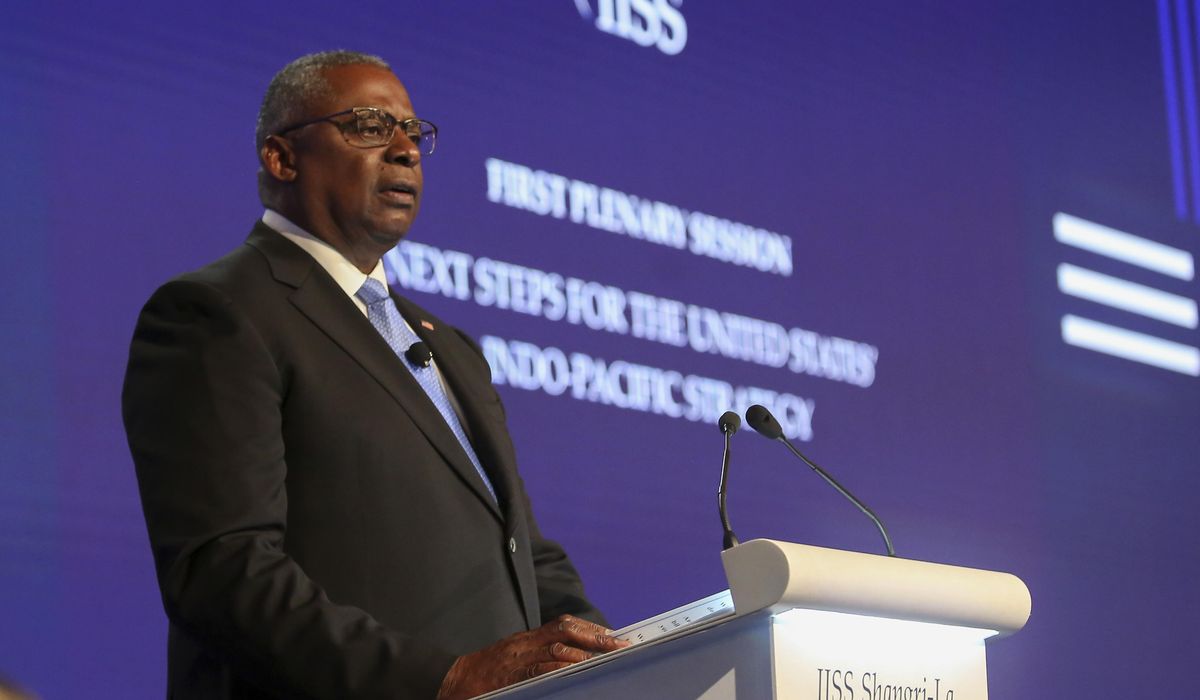

Defense Secretary Lloyd Austin on Saturday reaffirmed U.S. support for Taiwan and warned of rising tensions between Taipei and Beijing.
Speaking at the Shangri-La Dialogue in Singapore, Mr. Austin condemned China’s increasing provocations aimed at the self-governed island, warning that Beijing’s moves “threaten to undermine security, and stability, and prosperity in the Info-Pacific.”
“We’ve witnessed a steady increase in provocative and destabilizing military activity near Taiwan,” Mr. Austin said. “And that includes PLA aircraft flying near Taiwan in record numbers in recent months—and nearly on a daily basis.”
Mr. Austin committed to defending U.S. interests in the India-Pacific “without flinching.”
“We remain focused on maintaining peace, stability, and the status quo across the Taiwan Strait,” he said, adding that peace and stability in the region is “a matter of international concern.”
Beijing claims Taiwan as its own territory. World leaders have become increasingly concerned that China will use military force to retake the island that lies just over 100 miles off of the mainland.
During his remarks, Mr. Austin underscored the U.S. commitment to the “One China” policy, a diplomatic acknowledgment of Beijing’s assertion that there is one Chinese government but allows informal relations with Taipei.
“We do not support Taiwan independence,” Mr. Austin said. “And we stand firmly behind the principle that cross-strait differences must be resolved by peaceful means.”
Nonetheless, he said the U.S. will continue to fulfill its commitments under the Taiwan Relations Act.
“That includes assisting Taiwan in maintaining a sufficient self-defense capability,” he said. “And it means maintaining our own capacity to resist any use of force or other forms of coercion that would jeopardize the security or the social or economic system of the people of Taiwan.”
“Our policy hasn’t changed,” he said. “But unfortunately, that doesn’t seem to be true for the PRC.”
Mr. Austin also stressed the importance of U.S. partnership in the region amid the heightened tensions, highlighting last month’s Special Summit in Washington with the Association of Southeast Asian Nations, the growing importance of the U.S., India, Japan and Australia’s “Quad” alliance and the recently formed trilateral security partnership between the U.S., U.K. and Australia.
But he dismissed Chinese concerns that the U.S. intends to form a NATO-like bloc in the Pacific.
“Let me be clear, we do not seek confrontation or conflict and we do not seek a new Cold War, an Asian NATO, or a region split into hostile blocs,” he said.
